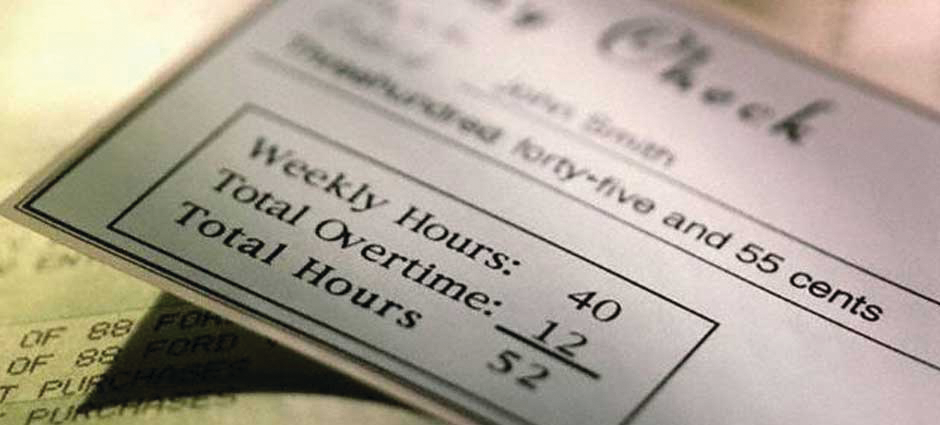Every year, the New Year is filled with talks of goal setting. And, though it may sound cliché, the New Year is actually a good time for accountants to review the previous year with their clients and start planning for the year ahead.
The New Year usually brings with it new laws and rules that small business owners must be aware of. In 2017, the IRS has issued new deadlines for filing forms. Forms W-2 and 1099 must be issued to employees and independent contractors by January 31, 2017. In addition, forms must be filed with the IRS and SSA by February 28, 2017. Meeting these deadlines is important to avoid any late fees and/or penalties.
The IRS issued new tax rates for 2017, as well as a new mileage deduction rate of 53.5 cents per mile for business miles driven (down from 54 cents in 2016). The minimum wage also increased in several states, although some increases won’t go into effect until later in the year. In addition to a minimum wage increase, small business owners that do business in California should also be aware of other changes enacted such as a reduction in the overtime threshold for agricultural workers and an expansion to the Fair Pay Act that covers race, ethnicity and prior salary.
With these changes, also comes some uncertainty as the Department of Labor Overtime Rule Change continues to hang in limbo and the repeal of the Affordable Care Act continues to move forward. Many small business owners may find themselves a bit anxious and confused about how to manage payroll moving forward. Before the DOL rules were delayed, many accountants had already begun working with their small business clients to be compliant when the new rules took effect. Many payroll vendors rolled out updates and new features to ensure customers had the tools they needed. Moving into the new year, accountants and their clients should move forward with their preparation for compliance while they wait for a decision.
“Many of our customers worked with their clients to be compliant with the rules if they hadn’t been delayed. As such, accountants are in a good position to help their clients by being familiar with the thresholds that were proposed. Continuing to keep their fingers on the pulse to know what’s going on and being educated is a good place to be in this uncertain time,” said Luke Reynebeau, Channel Marketing Manager for the Accountant Channel, SurePayroll, Inc.
Right now, accountants are meeting with clients to prepare taxes. This is a great time for accountants and payroll professionals to assess 2016 and make plans to ensure compliance moving into 2017. With the impending changes and uncertainty, accountants can use the New Year to work with their clients and partners to put together a plan and make sure they are proactive as changes are rolled out.
“Accountants are busy this time of the year, with tax season coming up, but this is really a great time to check in with clients. Accountants are already meeting with clients and collecting documents to prepare and file taxes. Reviewing these documents with clients to make sure last year went smoothly and they were compliant is a great start to steer them on the right path for compliance in the coming year, especially as new laws are enacted,” said Reynebeau. “This is a good opportunity to reset and make sure everyone’s on the same page.”
For more on IRS deadlines, visit https://www.irs.gov/businesses/small-businesses-self-employed/employment-tax-due-dates.
States that will see a minimum wage increase in 2017:
Effective December 31, 2016:
- New York:
o Greater New York: $9.70 per hour
o Nassau, Suffolk, and Westchester counties: $10 per hour
o New York City (small employers): $10.50 per hour
o New York City (large employers): $11
Effective January 1, 2017:
- Alaska: $9.80 per hour
- Arizona:
o $10 per hour
o Scheduled to increase to $10.50 per hour on January 1, 2018
- Arkansas: $8.50 per hour
- California:
o Employers with 25 or fewer employees: $10 per hour
o Employers with 26 or more employees: $10.50 per hour
o Scheduled to increase to $11 per hour on January 1, 2018
- Colorado:
o $9.30 per hour
o Scheduled to increase to $10.20 per hour on January 1, 2018
- Connecticut: $10.10 per hour
- Florida: $8.10 per hour
- Hawaii:
o $9.25 per hour
o Scheduled to increase to $10.10 per hour on January 1, 2018
- Maine:
o $9 per hour
o Scheduled to increase to $10 per hour on January 1, 2018
- Massachusetts: $11 per hour
- Michigan:
o $8.90 per hour
o Scheduled to increase to $9.25 on January 1, 2018
- Missouri: $7.70 per hour
- Montana: $8.15 per hour
- New Jersey: $8.44 per hour
- Ohio:
o Gross receipts of $297,000 or more: $8.15 per hour
o Gross receipts under $297,000: $7.25 per hour
- South Dakota: $8.65 per hour.
- Vermont:
o $10 per hour
o Scheduled to increase to $10.50 per hour on January 1, 2018
- Washington:
o $11 per hour
o Scheduled to increase to $11.50 per hour on January 1, 2018
Effective July 1, 2017
- Washington D.C:
o $12.50 per hour
o Scheduled to increase to $13.25 per hour on July 1, 2018
- Maryland:
o $9.25 per hour
o Scheduled to increase to $10.10 per hour on July 1, 2018
- Oregon:
o $10.25 per hour
- Scheduled to increase to $10.75 per hour on July 1, 2018
o Portland metro area: $11.25 per hour
- Scheduled to increase to $12 per hour on July 1, 2018
o Nonurban counties: $10 per hour
- Scheduled to increase to $10.50 per hour on July 1, 2018
Thanks for reading CPA Practice Advisor!
Subscribe Already registered? Log In
Need more information? Read the FAQs





